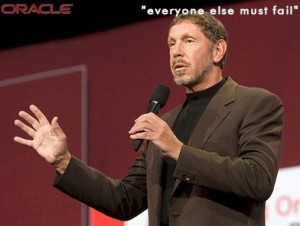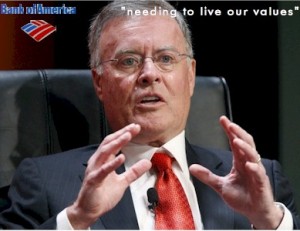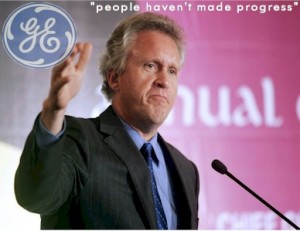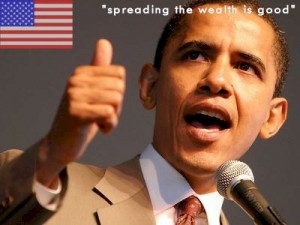More Tax or Less Tax?
February 13, 2010 by Openyear
Filed under Super Earners
In representative democracies, tax policy, and public policy, generally, are a function of opinion and partisan control of government.where O is opinion and I is partisan control of government. According to a CBS News opinion poll, 74% of US earners support higher taxes on super earners to redress inequality. Financial Times / Harris polling shows similar sentiment for the UK (56%), France(51%), Italy(59%), Spain(65%), Germany(64%), China(60%) and Japan(77%). US top tax rates are near historic lows. Given historical cyclicality - the Great Recession and war - the Federal deficit, and the mood amongst the earning public, top tax rates are very likely to rise. Only 1 question remains: What's the most important action you can take to mitigate the rise? Action 1: Influence partisan control. Contribute to the political party or candidate of your choice. Efficacy: Reversible change. Whatever your party achieves today can be undone tomorrow by the next party in power. Breadth of change is limited to your country. Action 2: Influence opinion. Contribute a recommended minimum 3% of your pay to the earning public using Open Pay. Efficacy: Permanent change. Like Facebook's shifting of attitudes towards privacy, Open Pay shifts attitudes towards inequality and the need for increased taxes on super earners like you. Breadth of change spans the globe.
Action 2 makes trickle down REAL for earners. Either action is tax deductible in the US. But, only action 2 enhances your reputation for social responsibility, improves the economy, and helps ameliorate many social ills like violence, lack of trust and mental illness, which all rise in proportion to inequality. Action 2 is preemptive, strategic and 4X as efficient as taxation at reducing inequality by putting money directly into earner's pockets based on merit (relative person to person influence). So, it will mean less less taxation for you in the years to come. Chances are you've tried action 1, and observed, first hand, the limits of partisanship. Instead, why not gain instant street credibility with earners, and dampen the call for higher taxes by opening your pay? Maximize your impact on the world by joining your super earning peers in explosive action that gives you the biggest bang for the buck, for only slightly more than what you're probably donating, on average, to charity today. Last, but not least, action 2 feels better than action 1. So, feel better and sign up!
Class Cooperation. Not Class Warfare.
January 25, 2010 by Openyear
Filed under Super Earners
If you earn more then $325K in the US, you’re in the top 1% of all earners. You’re a super earner. Chances are you own a business, manage a business or have a great portfolio. You depend on your business. Your business depends on consumers. Consumers depend on earners.
When earning isn’t well distributed, consumers lean on credit. When credit runs out, consumers can’t buy what you’re selling. The economy stalls. This is where we are now. What’s the way back? Balance has to be restored. Goldman Sachs knows it. They’re looking for an alternative to increased taxation. That’s why they’re considering enforcing a requirement that all their executives donate 4% of their bonuses to charity. Here at Openyear, we’re asking you to consider donating 3% of your income to the bottom 99% to help reduce inequality. We call it Open Pay. Open Pay distributes pay based on relative person to person influence. With respect to reducing inequality, Open Pay is 4X more efficient than taxation. Take a look at our 5 reasons to open your pay here, or read on to learn why we think Open Pay is, arguably, the best use of your charitable dollar.
You probably think in terms of drivers. If a ship is sinking, bailing is essential, but fixing the driver, the leak, is critical. Epidemeologists have recently identified inequality, itself, as a driver of many of society’s problems – from lack of trust to violence and imprisonment.
If you have an interest in any of these problems, you can address each issue one at a time. Or, more productively, address then all in one action, by focusing squarely on inequality.
Super Earners have asked us the question, “I see how this can help the middle, but what about the poor?” Poverty can be understood as a system. Its 2 most important drivers are growth and inequality. The size of the pie, as measured by GDP, gets lots of attention. But what about it’s counterpart – how the pie gets sliced – as measured by the Gini Index – it gets far less attention. But, it’s the elephant in the room.
Your charitable contribution to Open Pay goes directly to earners in the bottom 99%. 90% of all earners in the US make less than $100K. This $100K and under earner group gives, on average, 2.2% of their income to charity, as compared to 1.8% for super earners. Since 10%+ of what they give goes towards the basic needs of the poorest, as compared to about 5% for super earners,
Open Pay, enables you to strengthen the middle, and that helps cascade giving to the poor. Consider that people in the middle probably know more poor people than you do, and leverage their domain expertise. Class cooperation. Not class warfare.
You value your time. You value your effectiveness. We challenge you to consider what other single action you can take that helps to improve both society and markets at the same time. Why wait for higher taxation, when you can demonstrate leadership now on an alternative approach to ameliorating inequality, that puts money directly into people’s pockets based on merit ? Please consider Open Pay today, your staff and the public will love you for it!
He earned $556M in 2008. Should Oracle CEO, Larry Ellison, share his wealth?
July 24, 2009 by Openyear
Filed under Super Earners
Send Larry a message. Take the 2 minute survey.

He earned $12.5M in 2008. Should Bank of America CEO, Ken Lewis, share his wealth?
July 24, 2009 by Openyear
Filed under Super Earners
Send Ken a message. Take the 2 minute survey.

He earned $5.4M in 2009. Should GE CEO, Jeff Immelt, share more of his wealth?
July 24, 2009 by Openyear
Filed under Super Earners
Send Jeff a message. Take the 2 minute survey.

He earned $5.5M in 2009. Should US President, Barack Obama, share more of his wealth?
July 24, 2009 by Openyear
Filed under Super Earners
Send Barack a message. Take the 2 minute survey.
Actor James Gandolfini opened his pay to other actors on the Sopranos.
January 6, 2009 by Openyear
Filed under Super Earners
Comments Off on Actor James Gandolfini opened his pay to other actors on the Sopranos.
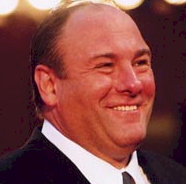
After 4 seasons starring in the HBO series The Sopranos super earner actor James Gandolfini decided it was time for a change.
In the series, he played a NJ mobster in therapy, Tony Soprano, pursuing the conflicting goals of maintaining tranquility at home, while simultaneously managing his crew of earner-mobsters in their illicit activities.
The 5th season was delayed while James and HBO sparred over his contract. James sought to more than double his pay. He understood that as the star, he couldn’t be written out of the show like others in the cast, so he was in a strong negotiating position. He held out. Fears mounted that the show would be canceled. But, in the end, they came to an agreement.
So, what did James do with some of his extra pay? He opened it up.
He wrote checks to his fellow actors, amounting to a significant percentage of his pay, to acknowledge that together, as an ensemble, they made the show great!
By its very nature, his contract negotiations with HBO were closed to others. It was all about him. But, he chose to make the gain all about them.
 Together, the financially fortified ensemble of that 5th season went on to contribute to The Sopranos becoming the first cable show to ever win an Emmy award for Best Drama Series.
Together, the financially fortified ensemble of that 5th season went on to contribute to The Sopranos becoming the first cable show to ever win an Emmy award for Best Drama Series.
CEO Sam Palmisano opened his pay to encourage teamwork at IBM.
January 6, 2009 by Openyear
Filed under Super Earners
Comments Off on CEO Sam Palmisano opened his pay to encourage teamwork at IBM.
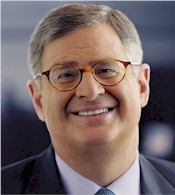
Fortune 500 CEO compensation contracts are typically closed to outsiders. That is, their contracts typically benefit them as individuals, and no one else. Like all other Fortune 500 super earner CEOs, Sam Palmisano, CEO of IBM, had such a contract.
But, Sam had a problem. The various division heads of IBM sometimes pursued their own results at the expense of IBM as a whole. Shifting his management team’s emphasis from me to we was a prerequisite for getting the best over all results for IBM. How to do it?
Sam’s answer was to break the CEO mold by choosing to open his pay. He requested that IBM’s Board of Directors vote in favor of making a substantial percentage of his pay available to incentivize his direct reports to work together. Results? Sam’s action helped bring the team out of them, which contributed to IBM returning a record $8 billion to investors.
Actor Keanu Reeves opened his pay to the crew on the Matrix movie.
January 3, 2009 by Openyear
Filed under Super Earners
Comments Off on Actor Keanu Reeves opened his pay to the crew on the Matrix movie.
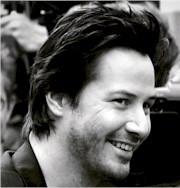
Like many A-list Hollywood super earner actors, Keanu Reeves has the leverage to negotiate a contact that gives him a percentage of profits from films he stars in, as he did in The Matrix.
In the movie, Keanu plays Neo , a happy earner, who discovers that his happy life is an illusion simulated by machines – who have supplanted humans to become the dominant lifeform. He’s given the choice to remain in the illusion, or to perceive the world as it truly is.
Unlike many A-list actors, whose contracts are closed to outsiders, Keanu decided to change his contract so he could open his pay to the crew that would produce the sequels The Matrix Reloaded and The Matrix Revolutions. He chose to set aside a percentage of his upside to benefit the crew who lacked the power to negotiate for a slice of profits. As he put it:
“What I did was I put part of what was given in my contract to create a pool so that other people who don’t usually do profit participation could see some money.”
 So, what was the result? When Keanu opened his pay to the crew, – he shifted the focus from me to we – this helped propel The Matrix Reloaded to the second highest grossing R rated film of all time.
So, what was the result? When Keanu opened his pay to the crew, – he shifted the focus from me to we – this helped propel The Matrix Reloaded to the second highest grossing R rated film of all time.







